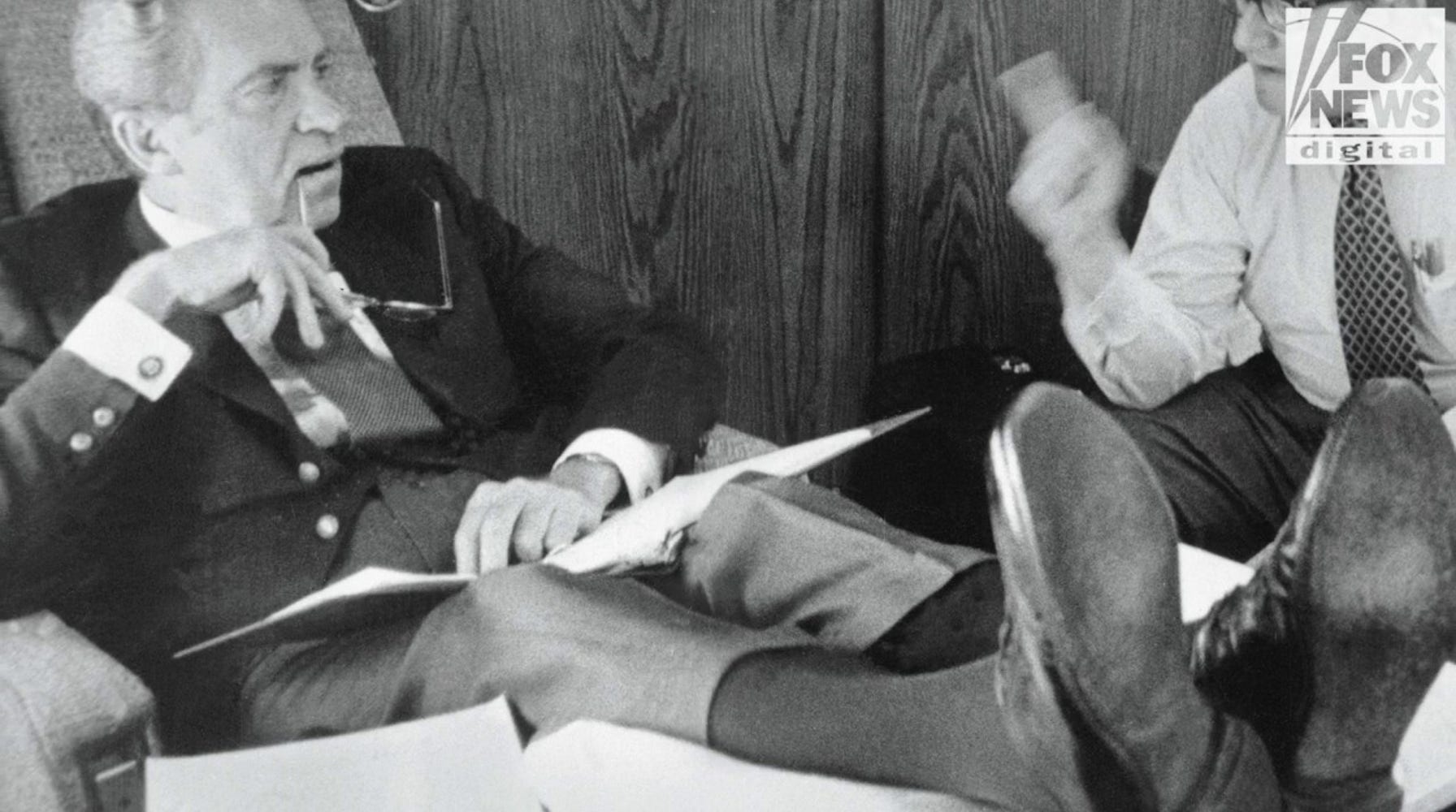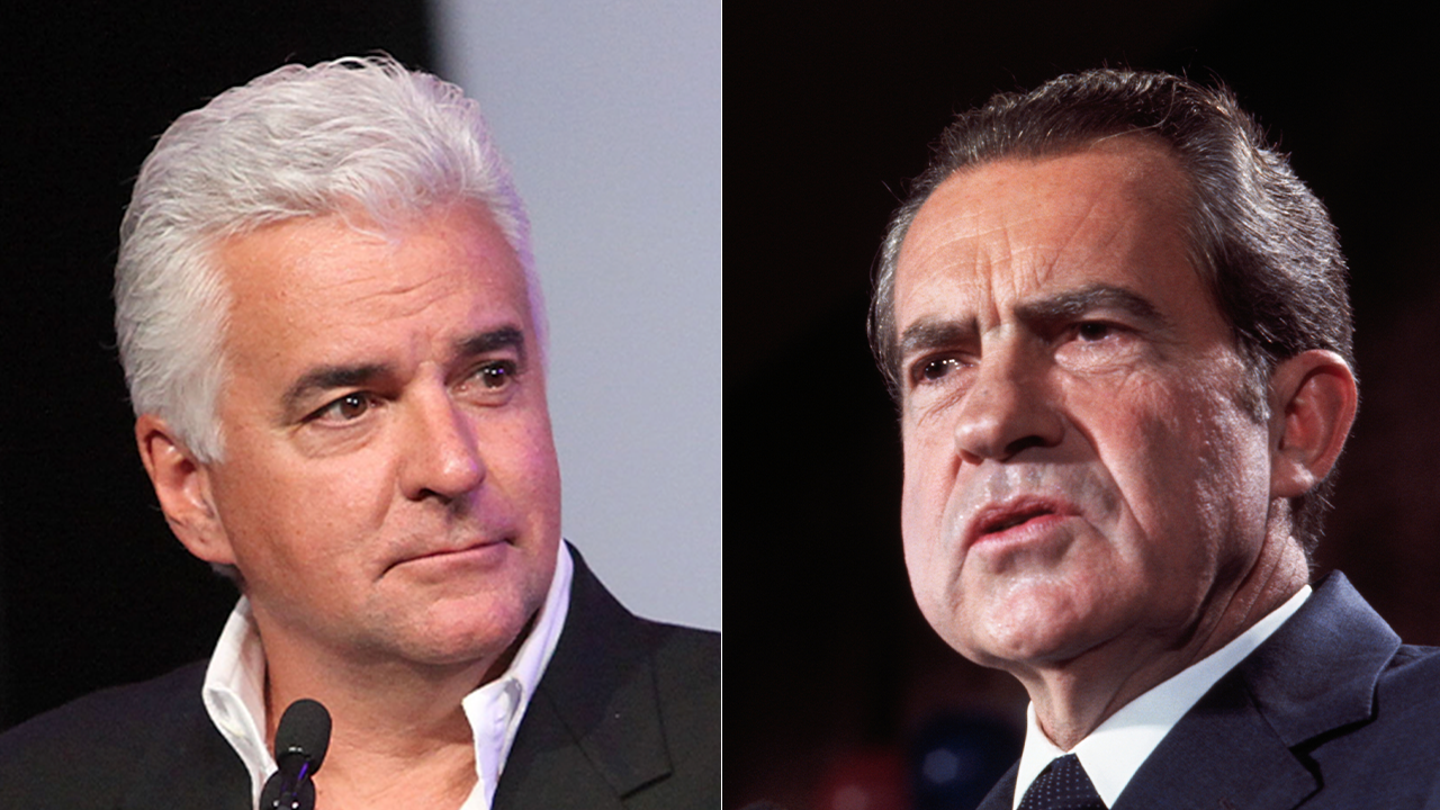New documentary, 'Watergate's Secrets and Betrayals,' reveals shocking truths about the events leading up to Richard Nixon's resignation. According to the film, the Watergate scandal was weaponized to force Nixon from office through an orchestrated railroading process.
For decades, the Watergate scandal has been etched into the annals of American history as a symbol of political corruption and the downfall of a president. But a new documentary, "Watergate's Secrets and Betrayals," sheds light on a darker truth—that the scandal was a carefully orchestrated plot to remove Richard Nixon from office.

Watergate's Dirty Secrets: A Weaponized Prosecution
Based on the research of Geoff Shepard, a former deputy counsel on Nixon's Watergate defense team, the documentary unveils a nefarious tapestry of events that culminated in Nixon's resignation. Shepard spent 27,000 hours sifting through the records of the Watergate special prosecutor, uncovering a trail of evidence that points to a collusion between judicial and prosecutorial interests to force Nixon out of office.
John O'Hurley, the narrator of the documentary, reveals that behind-the-scenes meetings between the judge and the prosecutor were held without the knowledge of Nixon's defense counsel. "There were about ten, maybe a dozen" such meetings, explains George Bugatti, the film's director. "But it's very hard to take a look again at a document that says, from a prosecutor – lead prosecutor – I met with the judge secretly."

Watergate's Dirty Secrets: A Weaponized Prosecution
This secrecy and alleged prosecutorial misconduct extended to the conviction of Nixon's associates. Shepard's research suggests that the convictions were tainted by prosecutorial maneuvering. As a result, Nixon, who was never directly implicated in the Watergate break-in, was pressured to resign, believing he had no other recourse.
O'Hurley emphasizes the devastating impact of this "railroading" on Nixon's legacy. "He chose to resign because there was no other recourse for him," he says. "And I think that history will now bear this out if this is layered to the fabric of what the story is, that he was actually railroaded."

Watergate's Dirty Secrets: A Weaponized Prosecution
Bugatti traces this "railroading" to the birth of "lawfare" in American politics. "What happened then is the birth of lawfare," he says. "It's the weaponization of the criminal justice system and how they use that weapon to drive a president from office."
The documentary argues that this weaponization of law has continued beyond the Watergate era. Bugatti urges vigilance, stating, "This is still happening today."
O'Hurley, who portrays J. Peterman on "Seinfeld," acknowledges that the popular narrative of Watergate has never been fully questioned. "I am just a John Q. American," he says. "I literally had no idea that any of these activities occurred or that they were at such a high level of atrocity that they should have changed a lot of the actions that took place during the Watergate hearings."
The documentary's aim, according to O'Hurley, is to reshape the understanding of Watergate by presenting the facts that have long been hidden. "I literally – I’m the person that this documentary is meant to reach," he says.
Both O'Hurley and Bugatti express hope that the documentary will lead to a reevaluation of Nixon's presidency. Bugatti encourages viewers to examine Nixon's accomplishments, such as creating OSHA and Title IX, rather than focusing solely on the Watergate scandal. "Take a look at his presidency and his legacy and not have the only thing that you think of when you think of Richard Nixon, as a caricature," Bugatti implores.
"Watergate's Secrets and Betrayals" is now available on WatergateSecrets.com and is set to premiere on major streaming platforms in the coming weeks. Its revelations have the potential to reshape the historical narrative of Watergate and raise questions about the integrity of the American justice system.










